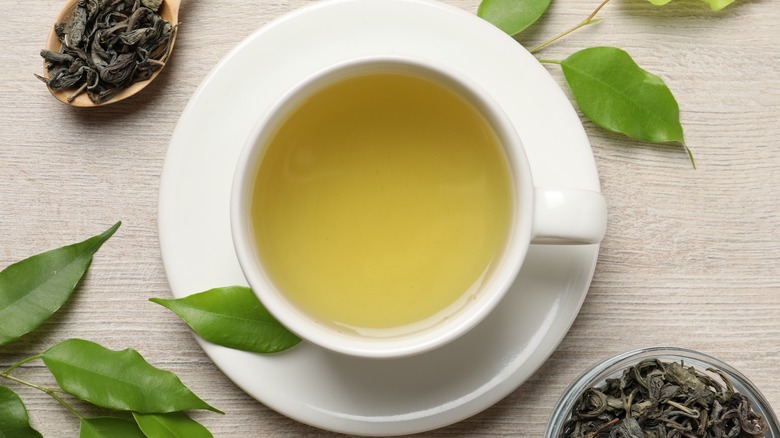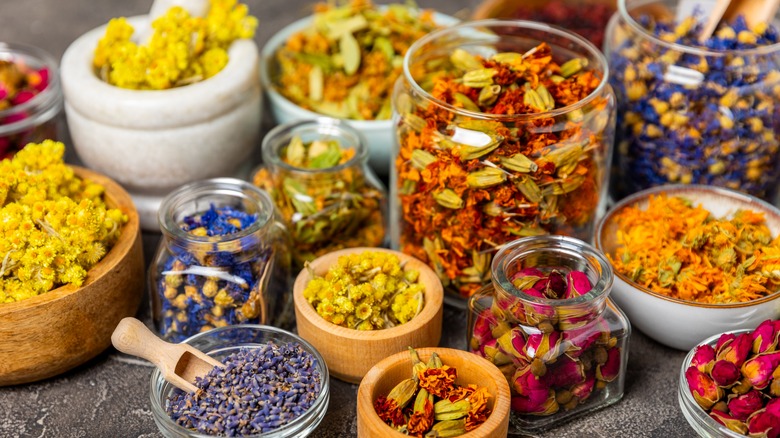What Kind Of Tea Is Caffeine Free?
If you are trying to avoid caffeine, the logical suggestion is to avoid drinking green, black, or oolong tea. As most people know, tea is full of caffeine — which is usually the point of drinking it. If you love the taste but don't want the caffeine, decaffeinated versions let you can enjoy tea time without the jitters. But a word of warning: Decaffeinated drinks aren't completely caffeine-free. (Even decaf coffee has caffeine in it.) The only way to drink a genuinely non-caffeinated tea is to make it herbal.
The amount of caffeine in decaffeinated tea is not zero, but it is significantly lower than regular tea. According to the U.S. Food and Drug Administration, 12 ounces of black tea has about 71 milligrams of caffeine, compared to the 113 to 247 milligrams in the same size coffee. When caffeinated tea leaves go through the decaffeination process, trace amounts of caffeine can still remain (sometimes more than 2% of the original level of caffeine). That's not much, but if you're avoiding it for anxiety, pregnancy, or other health reasons, you may want to skip the decaf, too.
For caffeine-free, your best bet is herbal tea
The good news is that many non-caffeinated and low-caffeine drinks exist. Just look at the Starbucks drinks with low (or no) caffeine. The brand has based its entire existence on java, so if a coffee titan can figure out how to appeal to the masses with less caffeine, you know there's a market for it. Options range from low-caffeine teas like Jade Citrus Mint Tea (which contains up to 40 milligrams of caffeine in a 16-ounce cup) to the decadent Chocolate Cookie Crumble Crème Frappuccino (which has just 15 milligrams of caffeine in 16 ounces). However, there is only one Starbucks drink that is 100% caffeine-free: The herbal Mystic Mint tea.
In the rest of the world outside Starbucks, the types of naturally caffeine-free herbal teas run the gamut in terms of flavor, and the bonus is that most come with added nutritional benefits. Take tea made from the fennel plant which is a digestive aid and decreases inflammation. Tea made with dandelion plants can help lower high blood pressure. But there are also plenty of tasty fruit, floral, and root-based herbal teas and blends to explore. So, if you need to say a hard goodbye to that morning picker-upper for a while, don't worry. Just remember to choose herbal tea alternatives for a jitter-free sip.

